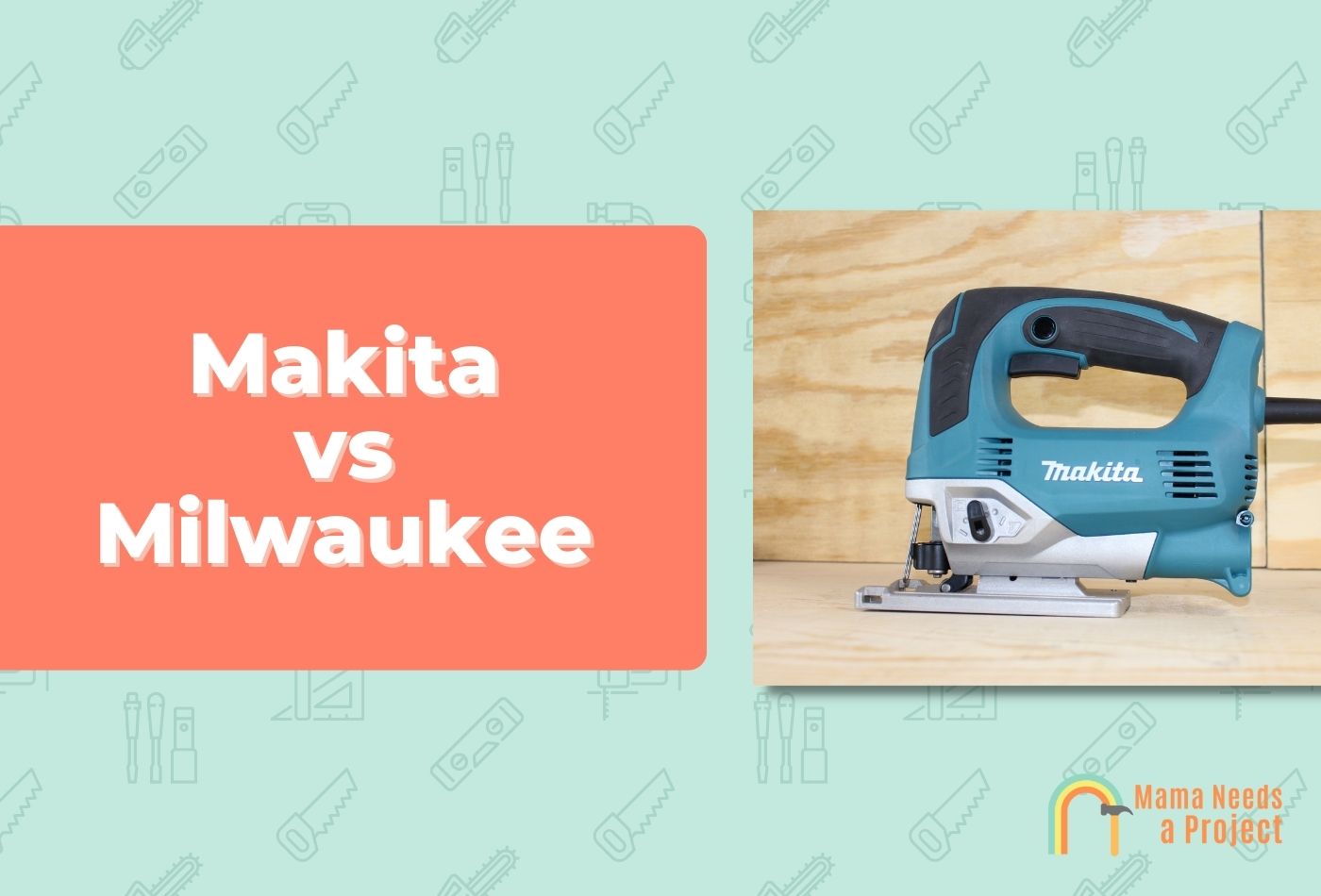Makita vs Milwaukee: Which is Better? (Ultimate Guide)
When it comes to professional grade tools, there’s likely no other argument that’s been around longer than: which one is better, red or blue?
Makita and Milwaukee have been around for quite a while and have long been the front runners for commercial tradespeople when it comes to selecting a line of tools that their livelihood depends on.
Prior to yellow even being an option (also called DeWalt), these two powerhouses have battled it out for over 70 years and continue to be common rivals in the power tool marketplace today.
So what’s better: Milwaukee or Makita? In this Makita vs Milwaukee tool comparison, I’ll explore a few considerations you should look at when comparing these tool brands so you can pick the best option for you. Let’s dig in!
- Both Makita and Milwaukee are extremely reliable and quality tool brands. In terms of quality, these two brands are about the same.
- In the end, I prefer Makita tools just slightly more than Milwaukee tools – but it’s more of a personal preference than anything else.
- Both brands offer an array of power tools including corded and cordless miter saws, circular saws, sanders, drills, and more.
Quality and Reliability
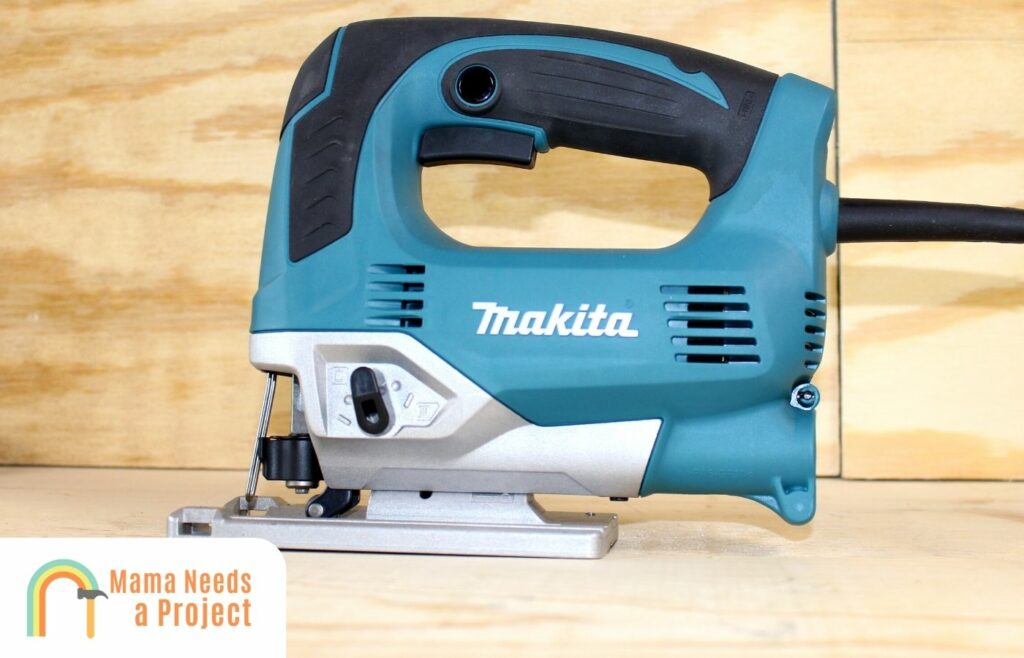
Both companies make reputable and effective power tools for the professional worker, but in recent years, increased competition has positioned both brands to also be affordable for the do-it-yourselfer or hobbyist.
Either company is going to provide a quality product to help you manage even the toughest power tool jobs. Long-term reliability is also a standard of both Makita and Milwaukee. I’ve been using both brands for years and there’s nothing that can destroy these tools.
These tools are going to be in your toolbox for about as long as it takes to get one of your children into college. Dependability and reliability with these brands is a pillar that they’ve hung their hat on, and even with the increased competition, these standards continue to be some of the best available.
Battery Life
While either brand is going to give you an acceptable amount of use from a full charge, there are some differences when it comes to overall battery life.
Milwaukee tools seems to be better for high or max power use under heavy loads, and this also would transfer to a longer lasting charge under light use. Maybe it’s the motor technology that creates this difference, not the battery, but power transfer shows Milwaukee coming out on top.
However, Makita has a slightly more advanced battery technology that gives it an edge by dominating the market with the fastest charging batteries available. Even though the Makita may come up short in one to one battery comparison, turnaround time on recharging could have your backup battery prepared to take on another cycle of abuse ahead of the Milwaukee counterpart.
Once nice thing about both power tool brands is that most of their tools use the same batteries, so you can easy swap them out when needed.
Product Lineup
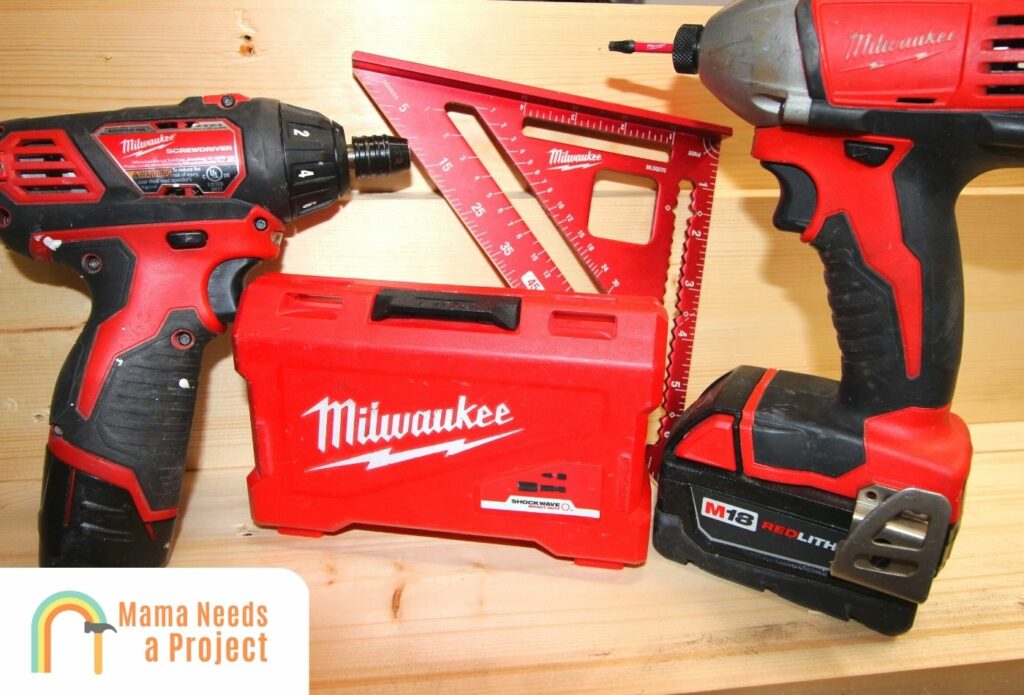
There are an unbelievable number of power tool options on the market by both of these brands.
Makita definitely tops the list when it comes to cordless power tools offering over 325 tools for its LXT 20V system. Milwaukee is no slouch in this market either though as their M18 cordless system offers over 200 different tool options for cordless battery power.
Either company is likely to have what you need to accomplish most any job you may come across. However, if you are in a highly specialized trade or require a specific unique set of cordless power tools, it’s definitely worth investigating either company to ensure they have the product offerings you need without having to purchase a separate battery system.
Corded tools have become an afterthought in many industries because mobility, speed, and accessibility have taken the lead on most jobs. As many people would argue, there are still some jobs or uses for power tools that battery power is just not going to be able to take over.
Both of these companies still make corded power tools, and many of them are special use or for extremely heavy-duty operations. Hammer drills, routers, and grinders are some of the most common heavy use power tools, but both Makita and Milwaukee have you covered on corded versions of any of these tools.
Pricing
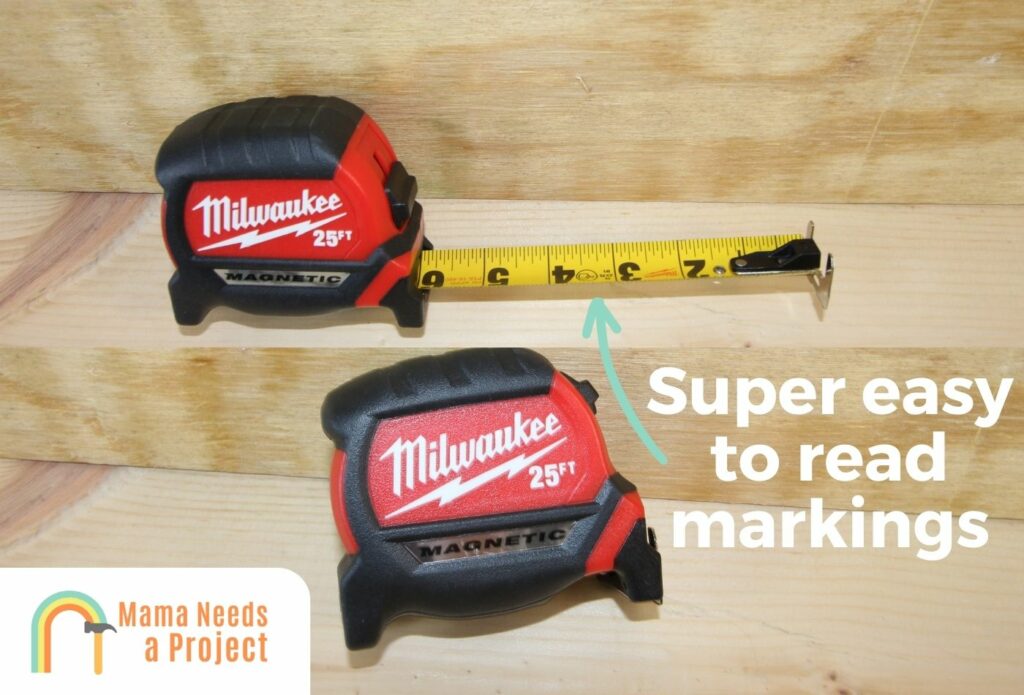
As you would expect, both Makita and Milwaukee carry premium price tags.
In cordless power tools, it really comes down to finding the best deal and knowing exactly what you need.
Combo tool kits are comparable in price on any given day for both brands, but the packages are not always one-to-one on what you get.
Individual tool purchases, whether corded or cordless, are also comparable for most common items and the prices are almost identical. The further you get into specialty items or premium versions of each company’s cordless tools, the price variation does seem to shift.
Milwaukee’s offerings of more “specialty tools” tend to carry a bit higher price tag than Makita, but justifiably so, the Milwaukee tools in this category are also a bit more rugged and truly intended for industrial or production type use.
Warranty
Not one of the more straightforward topics to discuss, warranty comparisons are best summarized by saying, “it’s complicated”. I will have to say, Milwaukee’s warranty is much more confusing than Makita’s in that there are so many different warranty periods for different tools.
Any of Milwaukee’s portable power tools can have a one to five year warranty, depending on what is designated when you purchase the item. Milwaukee’s cordless system warranty specifies two years, so not what I would call an industry’s best.
Makita, on the other hand, has simplified its warranty protocol and offers a three year warranty on all cordless systems, but only a one year warranty on all other products.
One notable thing about both companies’ warranty guidelines is that there are no caveats to use of their products in commercial settings. These tools are designed for professional use and neither company is going to penalize you for choosing their product to run your business!
Makita vs Milwaukee Impact Driver & Wrenches
Makita makes a very extensive line of impact drivers for almost any scenario you could imagine. Some of their more specific models are geared for high torque applications and heavy-duty use. Makita impact drivers are available in 12V, 18V, and even 40V versions with the most popular being the 18V LXT system. One unique offering that Makita provides in this class of impact drivers is a sub-compact 18V version. This is a smaller framed version of the standard LXT series that allows use in small spaces with the same power, but it also helps with taking up less space in your toolbox.
On the more automotive side of things, Makita also offers impact wrenches from 3/8” square drive up to ¾” square drive versions. Almost all of Makita’s impact wrenches tout high-torque capabilities for use in industrial and commercial applications.
Milwaukee also offers a large range of impact drivers and wrenches. While only offering 12V and 18V versions, the Milwaukee 18V is still comparable to the Makita 40V in its ability to transfer max power and torque without extensive battery drain.
Likewise on Milwaukee’s impact wrenches, if you need full power quick, Milwaukee is hard to beat. Their impact wrenches also come in 3/8” to ¾” square drive, but Milwaukee has taken it a step further and also offers a 1” square drive high-torque impact wrench that offers up to 1500 ft-lbs of torque, making it the most powerful impact wrench on the market.
Makita vs Milwaukee Circular Saws
Whether you need a cordless circular saw for occasional quick cuts, a heavy-duty one to cut stair runners all day, or a flush cut with a rail system, Makita has you covered.
With both common all-around use and high-end specialty saws, Makita makes a circular saw that can get the job done.
That being said, if you are looking for a very specific specialty saw, don’t be stingy with your wallet, as these saws are going to cost you. However, the payback is likely going to be well beyond the initial purchase price as this equipment is designed to last and take on some of the most demanding tasks.
Milwaukee circular saws also come in an array of options. There may be slightly less specialty versions, but you can still find cordless, worm drive, and track saws in the standard Milwaukee quality and powerhouse reliability.
Likewise, these Milwaukee circular saws are going to come with a hefty price tag just like the Makita tools, but they are likely going to be something that you can pass down to the younger generations as well.
Milwaukee vs Makita Miter Saws
Maybe not at the top of the list when you think about miter saws, but Milwaukee also makes miter saws in several different shapes and sizes. With the most options coming from their 18V Fuel cordless series, you can pick up a Milwaukee miter saw corded or cordless in a compound dual bevel version as well as a sliding version for maximum crosscut capacity.
These miter saws being on the upper end of the spectrum for common hobbyists and really designed for commercial users explains why this option may be a lesser-known offering of the brand.
Also available in multiple configurations, Makita makes a full range of miter saws in both corded and cordless versions. Compact options on the lower end of the spectrum are somewhat comparable to entry level saws in other brands, but unique design and functionality on their sliding compound miter saws is what I would refer to as a luxury model and well worth the extra dough.
Makita vs Milwaukee Drills
The most basic of tools, but no doubt the most used, both Makita and Milwaukee make awesome drills for any user.
Budget friendly entry levels with their compact 12V systems to high-end corded drywall screw guns, both Milwaukee and Makita are providing the market with extremely well-built and long-lasting drill options.
With the wide range of options depending on how specialized your task may be, there is really no comparison on price between the two companies in this category as each has offerings to match your specific job.
When compared to each other, this category truly does become a Ford vs Chevrolet situation. That being said, how much difference can there be between a Ford and Chevrolet? For that matter, how much harder would it be to isolate differences between Makita and Milwaukee drills?
Well, it all comes down to the user and their preferences. One key topic that always comes up for debate between these two brands is “feel”.
Do you want to feel the power aggressively transferred to the tool or do you need more of a finesse touch to get the job done. These two aspects are a debate that regularly comes up between Makita and Milwaukee.
As I mentioned earlier, Milwaukee seems to have more ability to transfer the battery’s power to the tool. This is something that some users feel as a positive in that they just need to power through whatever task is at hand. Maybe that’s a ¾” auger bit through a 2×4, but what about when you need to drill a 1/16” pilot hole for a jewelry box hinge? Is max power when the trigger is pulled going to be the best solution?
This is the crux of the debate over “feel”, and it may be something that everyone just has to decide for themselves. Word on the street is that if you need “Tim the Toolman” power all the time, Milwaukee is going to be your best bet, but if you are looking for more finesse and control, then Makita may be a better option.
To summarize the argument of “feel” as simply as I can, Milwaukee seems to be associated more with power transfer, and Makita associated with control and smoothness.
Here’s a great video for more help comparing these tools.
Makita vs Milwaukee Planers
A planer is definitely more of a specialty tool, but when it’s needed, there’s not much else that can suffice.
Milwaukee makes a few different versions of cordless handheld power planers. No doubt, these tools are going to carry the rigidity and reliability of all the other Milwaukee tools, but the options in the planer world are limited at best with Milwaukee tools. If this is an item that you are going to use regularly and a cordless version doesn’t make sense, you are going to have to move on as there are no corded versions available.
Makita has taken their planer game to another level.
Not only does Makita offer cordless versions of hand power planers, they also still have many versions of corded hand planers. So, if you use a hand planer on the regular and need something that you can use for hours on end, Makita may be the best bet for you.
In addition to hand power planers, Makita also offers a full on portable 12” planer that competes with some of the larger format planers on the market today. Premium quality and pricing as their mainstay, this beast is a great option for a professional woodworker or contractor that needs a full-size planer available wherever they go!
Makita vs Milwaukee Routers
Routers are more of a level playing field when it comes to Makita vs Milwaukee as both companies offer multiple options. With today’s standard being more around the ¼” laminate trim router spectrum, both brands offer cordless versions in their own battery platforms.
Likewise, both Makita and Milwaukee offer production type full-size routers in corded versions if you are more into making furniture or major amounts of woodworking that may require a trusty router to mount under your favorite router table.
Makita vs Milwaukee Sanders
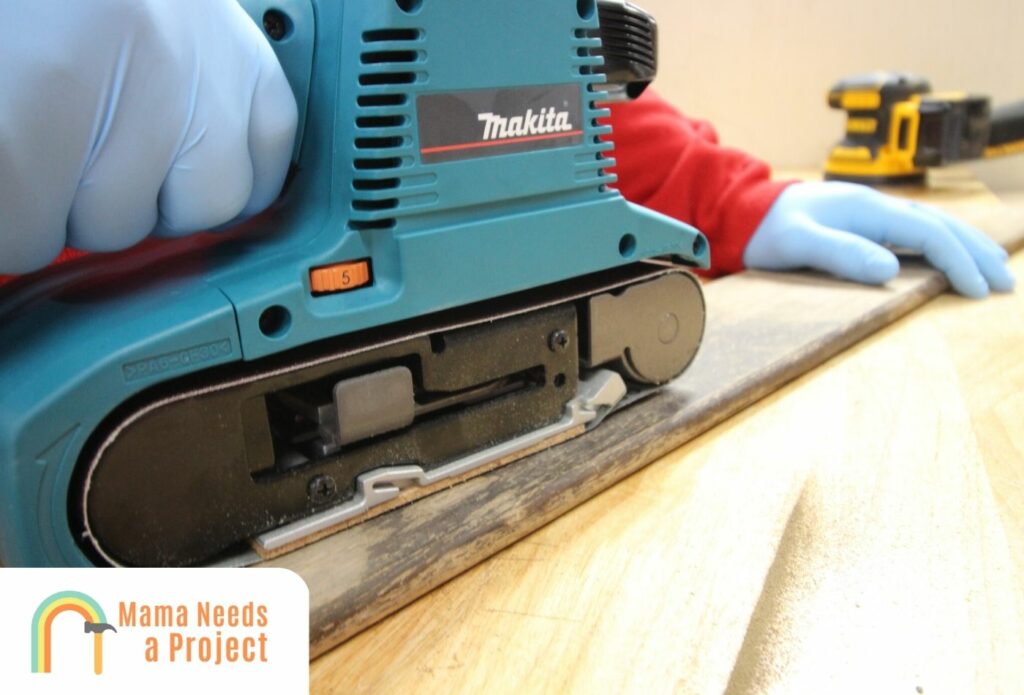
Both Milwaukee and Makita produce sanders in several configurations, both cordless and corded. Some of the more standard options are random orbital sanders, strip sanders, finishing sanders, disc sanders, and belt sanders. As with most of the other categories, there are a few small differences when entering into the specialty market.
Milwaukee offers a cordless detail sander that Makita does not currently have a competing model for. Think more along the lines of an oscillating tool or the Dremel brand triangular sander. This is more likely for a small project hobbyist as most larger sanders are able to accomplish what needs to be done for professionals in the commercial industry.
However, Makita has taken a different route and developed a more specialized drywall sander (not offered by Milwaukee) as a way of targeting professional tradespeople. A much larger and expensive tool, but maybe an opportunity to fulfill a need that Milwaukee has neglected?
History of Makita Power Tools
The Makita brand was originally founded in 1915, which started out of a need for electrical repair services.
By 1958, Makita became the first company in Japan to manufacture and sell portable electric planers. Their continued use of technology and cutting-edge manufacturing has led it to be one of the world’s only power tool brands left that is not owned by a larger company.
Makita offers a wide range of products that have become the go to power tools for many tradespeople because of their quality and performance.
Wondering how Makita stacks up against other brands? Check out my Makita vs DeWalt comparison or Makita vs BOSCH for more info!
History of Milwaukee Power Tools
The Milwaukee brand is an American company started in 1924 that soon became the main supplier of tools such as sanders, polishers, and grinders for the US Navy.
As this tool brand grew during World War II, it continued to develop and manufacture portable power tools until being bought out in 2016 by Techtronic Industries. Techtronic Industries is a Hong Kong-based company that also owns brands like Ryobi, Hoover, and Homelite.
Milwaukee’s tools boast a longer tool life than more affordable options, which is why so many people love these tools.
Wondering how Milwaukee stacks up against other brands? Check out these guides!
Final Thoughts
Makita and Milwaukee both make top quality, efficient, and reliable corded and cordless tools for the professional trades. You can’t go wrong with either brand as they both make quality tools that will last for years.
The determining factor on which one to pick comes down to personal preference.
If the tools you need are available in both brands, I would suggest you lay your hands on them and even try a demo if possible to see which one you prefer.
Something that’s going to last as long as either of these company’s tools needs to be something you can use comfortably. It’s a large investment and you don’t want to make the wrong decision on something you use as often as handheld power tools.

Fueled by a passion for working with his hands, Benjamin “Bear” Lyle makes a living running his home improvement business, but also has an extensive background in woodworking. Craftsmanship being one of the key components he prides himself on, his work is intricate and sometimes ornate in nature. Mixing a passion for duck hunting into his love for woodworking, he is also a highly awarded custom game call maker competing in some of the country’s most prestigious shows like the National Wild Turkey Federation (NWTF). Some of his physical work, as well as additional reading material can be found on his website www.bearkraft.com.

